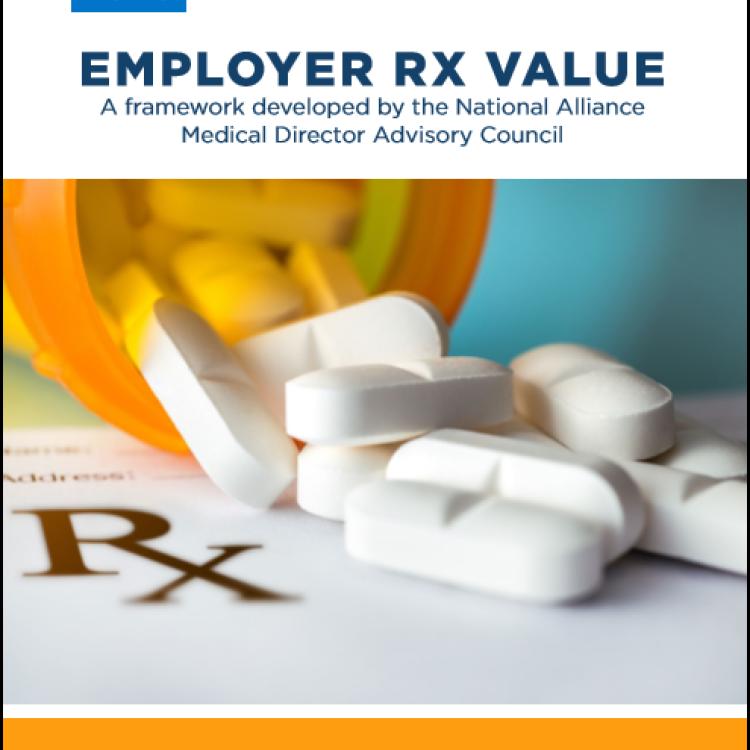By Lisabeth Buelt, consultant and former NPC research manager
The National Alliance of Healthcare Purchaser Coalitions recently published a report, “Employer Rx Value: A framework developed by the National Alliance Medical Director Advisory Council,” which evaluates existing value frameworks and offers insights on the relationship between value assessment tools and the employer perspective. The report summarizes the key takeaways from an all-day meeting of the National Alliance Medical Director Advisory Council in which participants reviewed and compared current value assessment frameworks and developed recommendations for employers to evolve their drug management strategies. Janssen, an NPC member, provided funding for this work.
Using NPC’s analysis, Current Landscape: Value Assessment Frameworks, as a basis to inform discussion, the Council examined seven existing value frameworks and developed a list of principal issues and concerns. Overall, the group observed that existing value frameworks lack key employer-relevant elements that may prevent them from fully addressing employer and plan sponsor needs. For example, the report notes that “the employer as a stakeholder is not highlighted in any of the frameworks,” and that several practical considerations, including net employer costs and contractual arrangements with their pharmacy benefit manager (PBM), are not incorporated in current value assessment tools.
In addition, the report echoes several of the concerns described in NPC’s Current Landscape analysis, including limitations related to frameworks’ lack of patient-centeredness, use of a limited evidence base, and failure to account for indirect benefits, such as improvements in absenteeism and productivity.
To help mitigate these issues in the future, the report includes several considerations and recommendations that may help to enhance current value assessment frameworks to reflect more employer-relevant content. Notably, the report calls for broader components of value to be incorporated in value assessment models (e.g., patient out-of-pocket costs, evaluation of a treatment’s impact on patient wellbeing and productivity). Greater use of real-world evidence is also recommended.
Employers are a key health care stakeholder in the United States. As value frameworks are used more frequently to inform health care decision-making, it’s important that value assessment models are modified to reflect employer perspectives.
